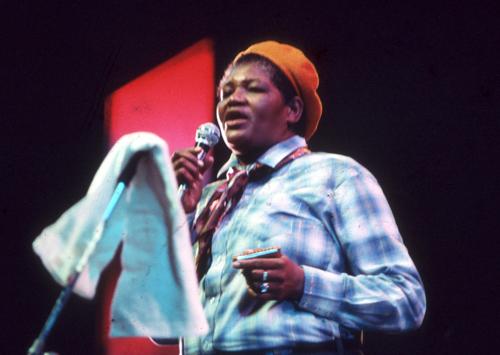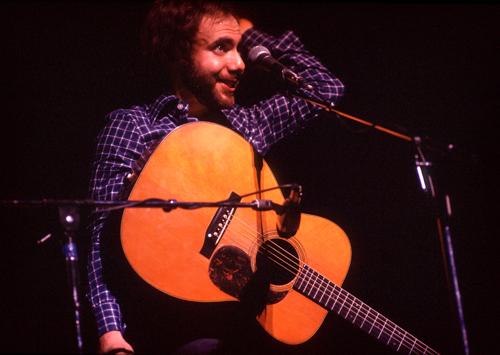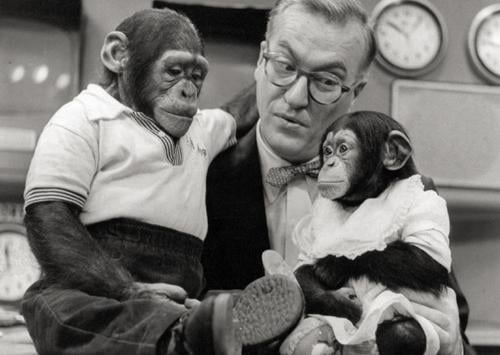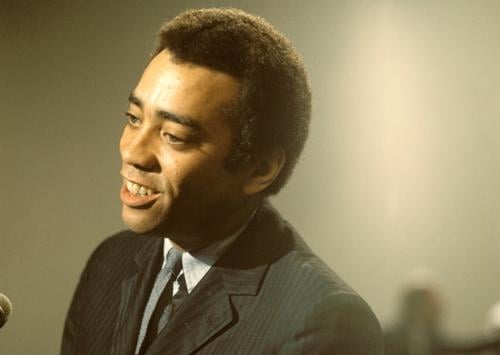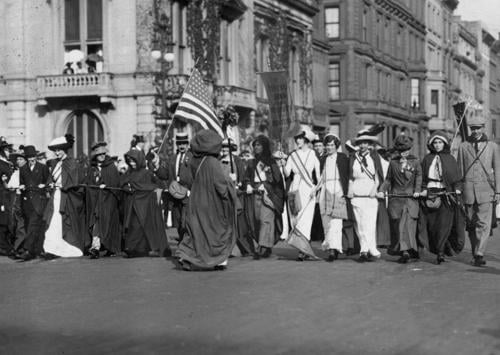Listen to New Voices on Studs Terkel our partnership with 826CHI-here! Read the Story
-
Willie Dixon, Sunnyland Slim and Big Mama Thornton discuss their careers in the blues and describe some of their songs
1970 Studs interviews blues singers Willie Dixon, Sunnyland Slim, and Willie Mae Big Mama Thornton about the blues. They discuss the blues festival in Chicago for which they are all in town for and name other musicians who will be performing. Sunnyland Slim talks about being on the road and the hard times. Thornton describes the blues as music made from life experiences.
-
Wild Bill Davison discusses his upcoming show at the Jazz Showcase
Apr. 24, 1984 American jazz cornet player Wild Bill Davison known for his wild ways, discusses his career in jazz music and life in Chicago. Davison rubbed elbows with all the Chicago bigwigs from Al Capone to jazz legends such as Fats Waller.
-
The Lira Singers in conversation with Studs Terkel
Nov. 28, 1986 Terkel comments and presents a musical performance by The Lira Singers
-
Talking with and presenting a retrospective of the work of folksinger, guitarist, and labor activist Win Stracke
May. 19, 1983 While reminiscing about their 46-year friendship, Studs Terkel presents of retrospective of Win Stracke's work. Stracke said he was surprised that Studs hadn't outgrown their friendship. A few excerpts from past interviews are included in this interview.
-
Steve Goodman discusses his album "Words We Can Dance To"
Apr. 30, 1976 Studs Terkel presents a “musical portrait” of Steve Goodman with the musician joining him in the studio to discuss, listen to, and play songs from his album “Words We Can Dance To.” Goodman begins by performing the blues song “Glory of Love,” and Terkel plays a clip from Big Bill Broonzy’s rendition of the song; Goodman cites Big Bill as one of his many influences. Goodman also plays an old jazz song called “When the Red, Red Robin,” with Terkel connecting that song to his first memories of jazz.
-
Sir Georg Solti talks with Studs Terkel
Feb. 1, 1995 Studs engages the former Chicago Symphony Orchestra conductor, Sir Georg Solti, in a wide-ranging conversation about his life and career. From his early studies in Budapest with Béla Bartók, his string of good-luck opportunities before, during, and after World War II, meeting Toscanini in Lucerne, and starting on top conducting in Frankfurt, London, and finally Chicago. He discusses his many German and European musical influences and contemporaries, and stresses the importance of education, arts funding, and hard work.
-
Radio and television personality Dave Garroway discusses jazz music
Jun. 11, 1974 Studs Terkel and Dave Garroway intertwine jazz music with conversation. The voices of Doris Day, Peggy Lee, Charlie Ventura, Duke Ellington, Erroll Garner, and Nellie Lutcher are heard between conversations ranging from Garroway's start in radio while in the United States Navy. Garroway discusses the changing technology and the thrill of it. Also includes the progress that has been made in race relations and the death of Duke Ellington.
-
Presenting the Old Town school of folk music
Oct. 8, 1963 Terkel comments and presents the Old Town school of folk music
-
Presenting music with the Chicago ensemble the Loop Group
Feb. 16, 1987 Terkel comments and presents a musical performance by the Loop Group
-
Presenting music with Oscar Brown, Jr
Jun. 6, 1977 Music performance by Oscar Brown, Jr.
-
Presenting music with jazz pianist and radio host of "Piano Jazz," Marian McPartland
Jun. 8, 1992 Terkel comments and presents a musical performance by Marian McPartland
-
Presenting music with jazz cornetist Jimmy McPartland and jazz pianist and radio host of "Piano Jazz," Marian McPartland
Oct. 26, 1990 Terkel comments and presents a musical performance by Marian and Jimmy McPartland
-
Presenting music by jazz musicians Jimmy McPartland and Bud Freeman
Aug. 31, 1982 Terkel comments and presents a musical performance by Jimmy McPartland and Bud Freeman
-
Paul Angle, historian and writer, and Win Stracke, folk musician, discuss "Crossroads: 1913," part 3
Jul. 1, 1963 Paul Angle discusses his book "Crossroads: 1913," and Win Stracke provides a musical review. The three gentlemen talk in depth about the book with live and recorded music interspersed. Music: "Water--Oh!, Water For Me" and "The Rosary." "The Voice of Vienna" (a waltz).


